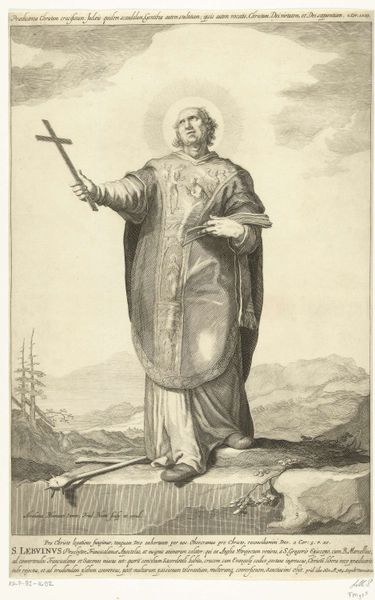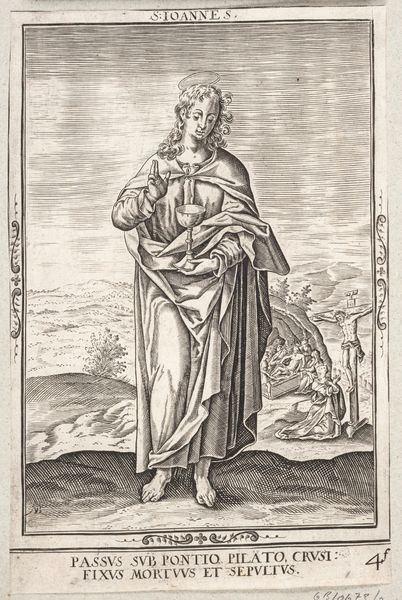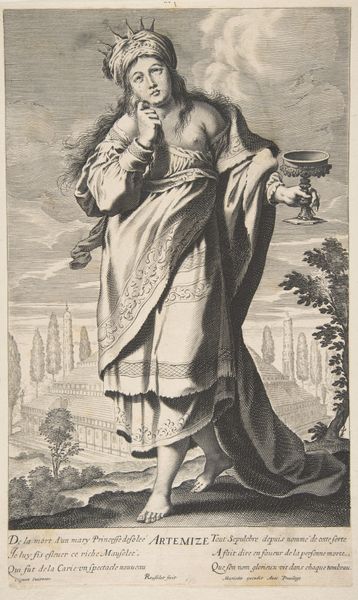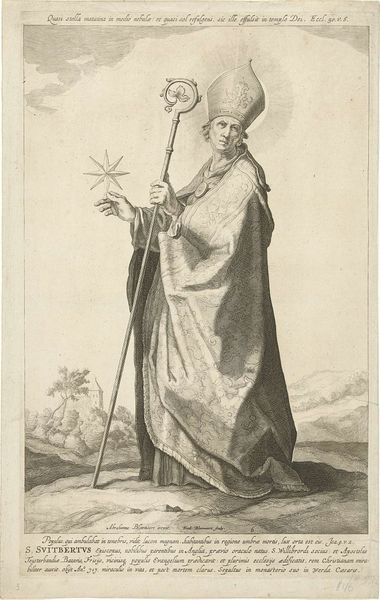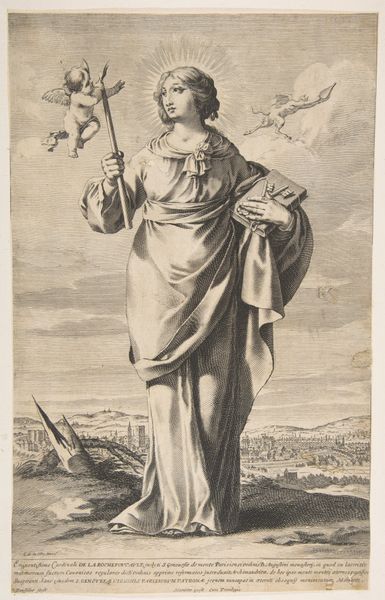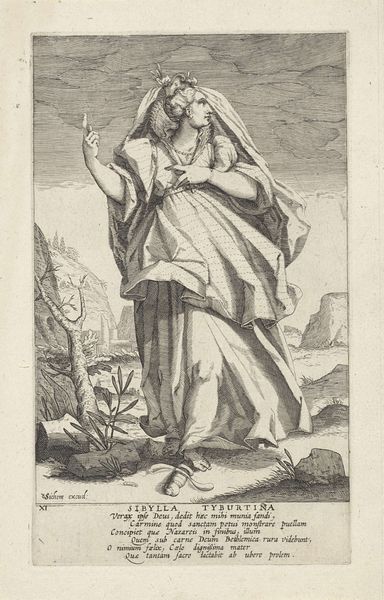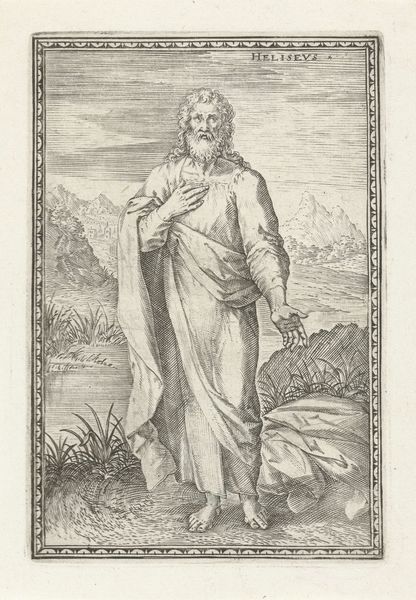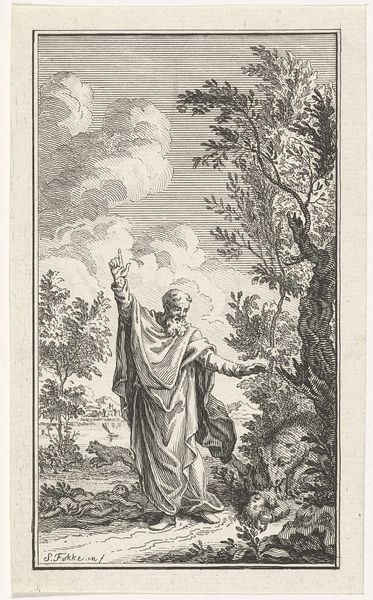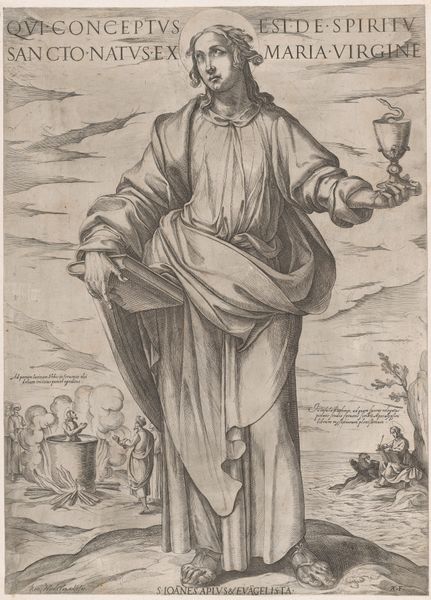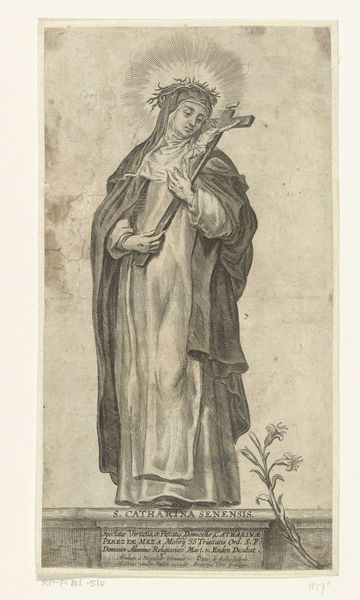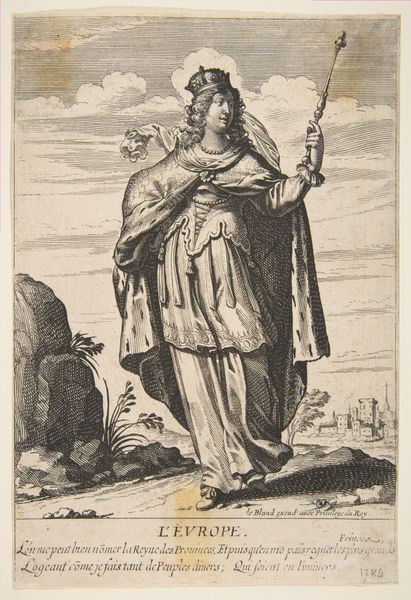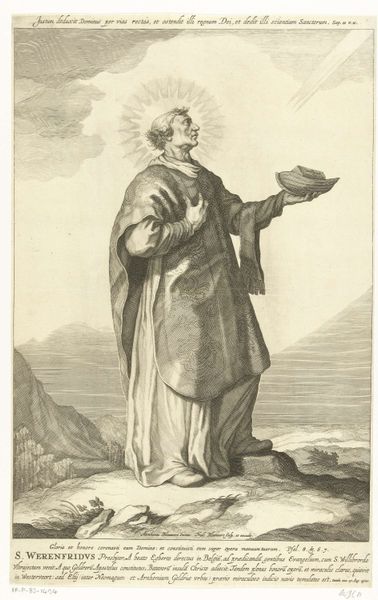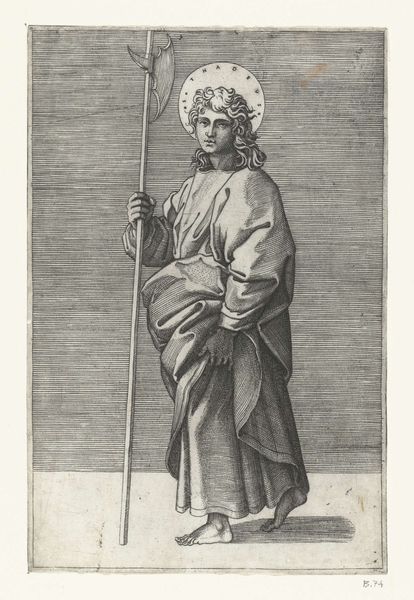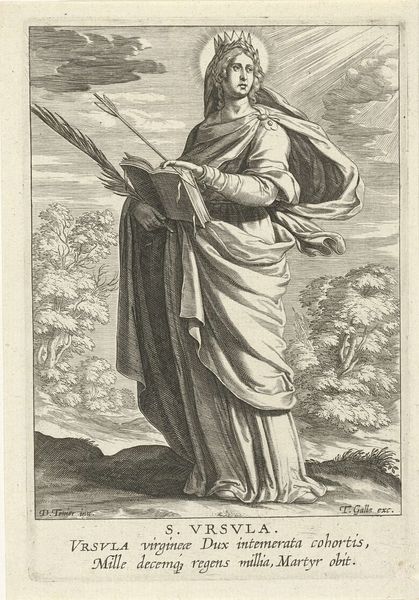
etching, engraving
#
portrait
#
baroque
#
etching
#
old engraving style
#
history-painting
#
engraving
Dimensions: height 466 mm, width 297 mm
Copyright: Rijks Museum: Open Domain
This is Frederick Bloemaert’s “Heilige Adalbertus van Egmond,” made using engraving techniques. The stark contrast of light and shadow is achieved through the meticulous labor of carving lines into a metal plate. Consider how each stroke required a deliberate action, a transfer of energy from the artist's hand to the burin, and finally, to the copper. The quality of the lines determines the textures, forms, and even the emotional tone of the print. Engraving, while a skilled craft, also became deeply entwined with commerce. Prints like these were reproduced and distributed widely, making images accessible to a broader audience. Bloemaert's Saint Adalbertus serves both as a devotional image and a commodity within the burgeoning print market of the 17th century. Understanding the material process gives us a deeper appreciation for not just the aesthetic qualities of the artwork but also its place within a network of labor, skill, and exchange.
Comments
No comments
Be the first to comment and join the conversation on the ultimate creative platform.
